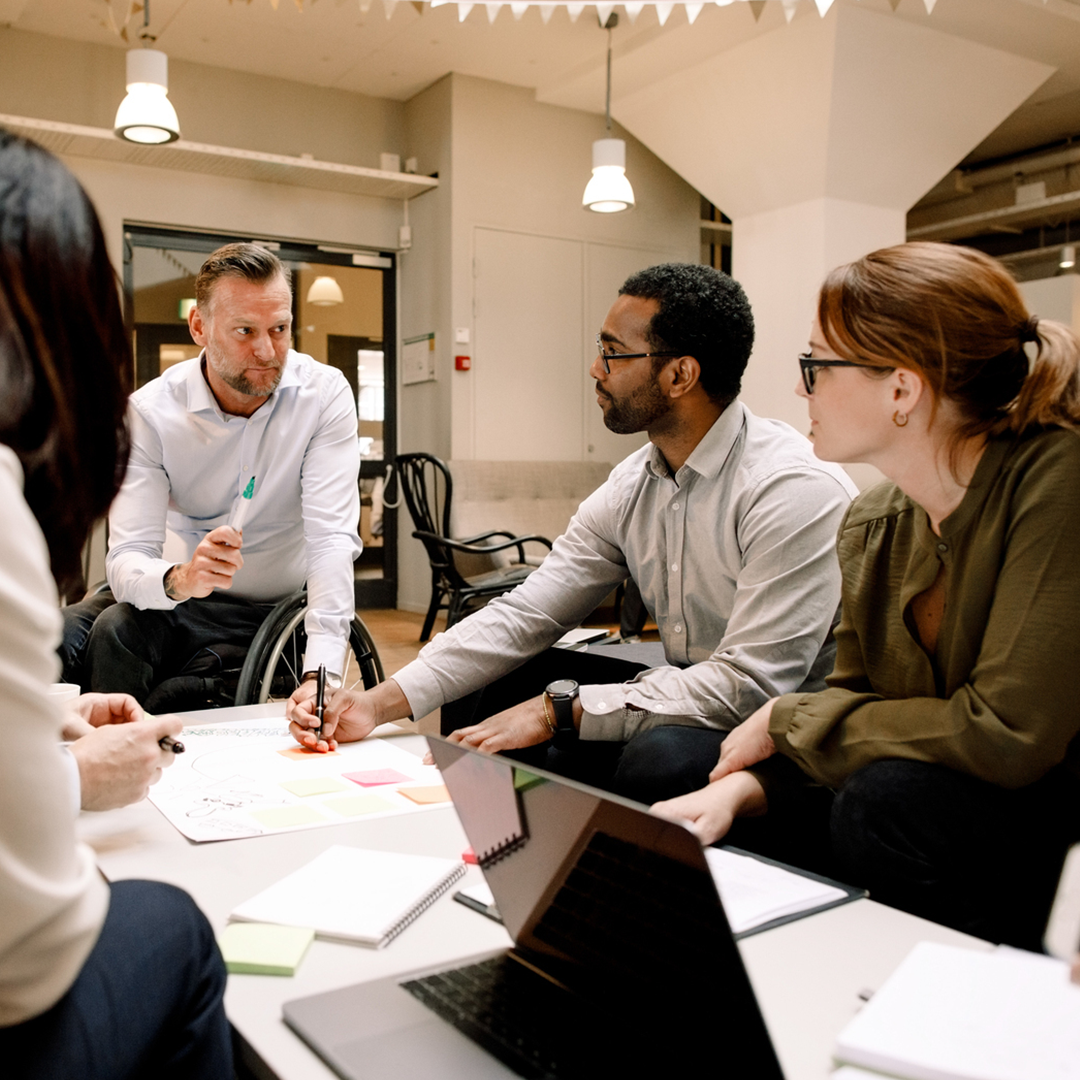Learn Individually, Together – or Both?
Learning isn’t just about what we take in – it’s also about how we do it. Some knowledge develops best at our own pace, while other skills grow stronger through interaction and collaboration. Striking the right balance between individual and shared learning can make a real difference.
.
Individual learning – when reflection and self-awareness matter most
Taking time to think, understand and process information at your own pace leads to deeper learning. When we take control of our own learning, we’re more engaged and can focus on what’s most relevant to us.
Particularly effective for:
✦ Factual knowledge – laws, regulations and technical specifications
✦ Complex concepts – strategies, analytical models and problem-solving
✦ Self-assessment and reflection – when personal experience is connected to new insights
.
Collaborative learning – when we learn best through interaction
Knowledge becomes truly useful when we get to test it, discuss it and challenge it with others. Working together brings fresh perspectives, strengthens communication and reveals how theory plays out in practice.
Particularly effective for:
✦ Decision-making and problem-solving – where diverse perspectives lead to better outcomes
✦ Communication and interpersonal skills – where realistic dialogue and roleplay build confidence
✦ Creative thinking and innovation – where idea sharing leads to new insights
.
Combining both – where theory meets practice
The most effective learning often happens in stages – individual understanding first, followed by collaborative application. By blending individual and cooperative learning, we gain both depth and breadth in our development.
Particularly effective for:
✦ Complex work processes – where theoretical understanding must come before practical application
✦ Leadership and team development – where personal insights grow stronger through collaboration
✦ Safety-critical scenarios – where knowledge is built independently but needs to be tested in real-world situations
Blended learning – a thoughtful mix of individual and social learning – leads to greater engagement and more effective application in real-life situations. What strategy delivers the best results for your organisation?



